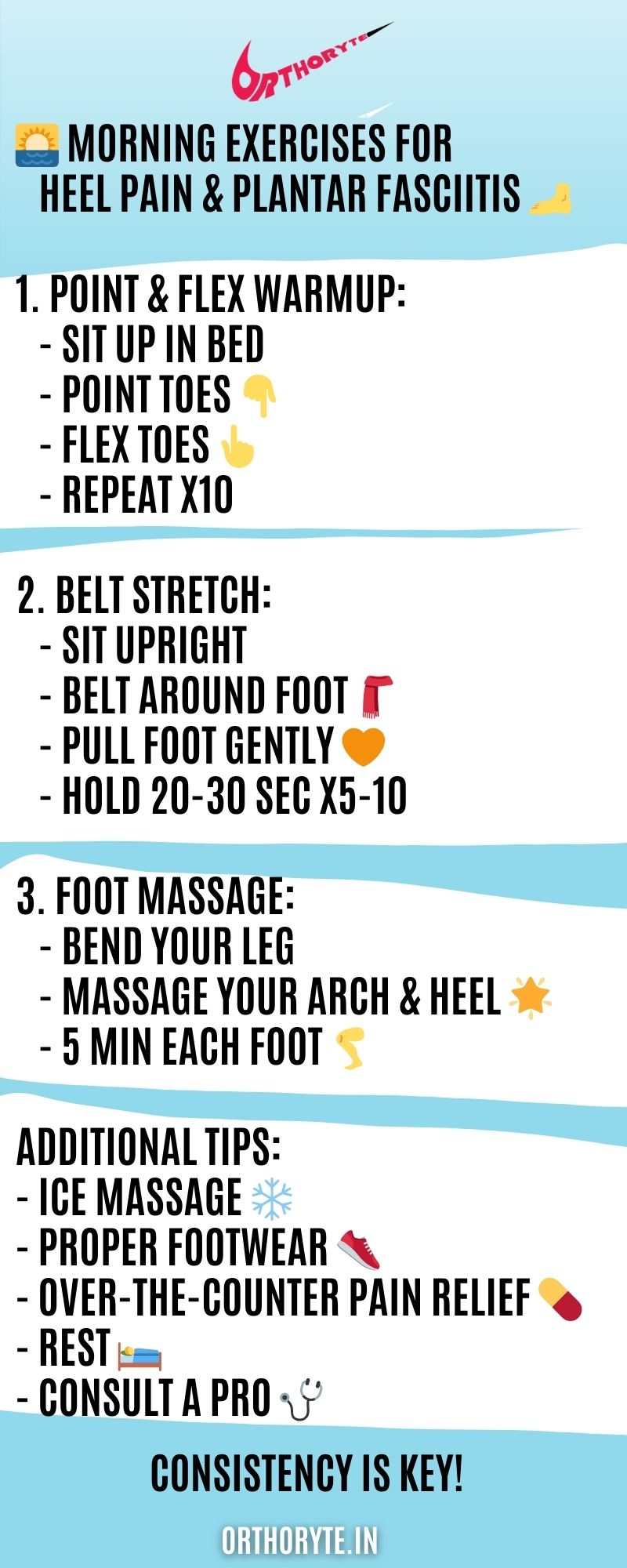Ease Morning Heel Pain with Simple Exercises
Are you tired of starting your day with sharp, stabbing heel pain? If you're experiencing discomfort in your feet, especially in the morning, you might be dealing with plantar fasciitis. The good news is that there are simple exercises and techniques you can do right in bed to ease that pain and get your day off to a better start. Let's dive into these helpful tips.
Why Morning Heel Pain Occurs
Morning heel pain is a common symptom of plantar fasciitis, a condition characterized by inflammation of the plantar fascia—a thick band of tissue that runs across the bottom of your foot, connecting your heel bone to your toes. During sleep, your foot remains in a relaxed, pointed position, causing the plantar fascia to contract and tighten. When you first stand up in the morning, the sudden stretching of this tight fascia can be intensely painful.
Over time, morning pain can worsen due to the presence of heel spurs—tiny calcium deposits that form on the heel bone. These spurs can compound the discomfort as they come into contact with the already tight and damaged plantar fascia.
Effective Exercises for Morning Heel Pain
To combat morning heel pain and promote the healing of your plantar fascia, incorporate the following exercises into your morning routine:
1. Point and Flex Warmup
- Sit upright with your legs extended in bed.
- Point your toes downward as far as possible, then flex them back up.
- Repeat this exercise 10 times.
This warm-up helps prepare your foot's soft tissues for the upcoming stretches.
2. Belt Stretch
- While seated with your legs extended, wrap a belt or towel around the ball of one foot.
- Hold the ends of the belt with both hands and gently pull your foot into a flexed position.
- Maintain this stretch for 20-30 seconds, then switch to the other foot.
- Repeat this exercise 5-10 times.
Ensure that the belt or towel is wrapped around the ball of your foot for an effective stretch of the plantar fascia.
3. Massage
- After completing the warm-up and belt stretch, give your feet a massage.
- Bend your leg towards you, making it easier to access the bottom of your foot.
- Begin massaging from the inner edge of the arch to the outer edge.
- Use gentle pressure to work your thumbs into the plantar fascia for about five minutes.
Massage promotes blood flow to the plantar fascia and helps prepare the muscles and ligaments for your body weight when you get out of bed.
Additional Strategies to Alleviate Morning Heel Pain
In addition to these exercises, consider these strategies to further reduce morning heel pain:
1. Sock Night Splints: These splints are designed to hold the plantar fascia in a stretched position overnight, reducing tightness in the morning.
2. Orthotic Inserts: Invest in orthotic inserts like Heel Seats to support and realign your flattened arch, relieving heel pain while walking. They also help address the root cause of plantar fasciitis and encourage the heel pad to rebuild.
3. Exploring Further Treatment Options
While exercises and stretches can be highly effective in managing morning heel pain associated with plantar fasciitis, it's essential to consider other treatment options that can complement your efforts. Here are some additional strategies:
4. Ice Massage: Applying ice to the affected area can help reduce inflammation and relieve pain. Roll a frozen water bottle under your foot for a simple and effective ice massage.
5. Proper Footwear: Invest in shoes that provide proper arch support and cushioning. Avoid wearing unsupportive footwear, such as flip-flops or worn-out sneakers.
6. Over-the-Counter Pain Relief: Nonsteroidal anti-inflammatory drugs (NSAIDs), like ibuprofen, can help alleviate pain and reduce inflammation. However, consult with a healthcare professional before using them regularly.
7. Rest: Give your feet adequate rest, especially during flare-ups. Minimize activities that put excessive strain on your feet.
8. Physical Therapy: A physical therapist can guide you through targeted exercises and techniques to improve your foot strength and flexibility.
9. Night Splints: In addition to sock night splints, you can opt for more robust night splints that keep your foot dorsiflexed during sleep, maintaining a constant stretch on the plantar fascia.
10. Corticosteroid Injections: For severe cases, a healthcare professional may recommend corticosteroid injections to reduce inflammation and alleviate pain. These injections should only be administered by a qualified medical practitioner.
11. Shockwave Therapy: Extracorporeal shockwave therapy (ESWT) is a non-invasive treatment option that uses sound waves to stimulate healing in the plantar fascia.
12. Stretching Devices: Consider using stretching devices specifically designed for plantar fasciitis. These can provide a more controlled and targeted stretch.
13. Weight Management: Maintaining a healthy body weight can reduce the stress on your feet and lessen the severity of plantar fasciitis symptoms.
14. Custom Orthotics: If over-the-counter inserts don't provide sufficient relief, consult a podiatrist for custom-made orthotic inserts tailored to your foot's unique needs.
15. Surgery: In rare cases when conservative treatments fail, surgical intervention may be necessary to release the tightened plantar fascia or remove heel spurs. Discuss this option thoroughly with your healthcare provider.
Final Thoughts
Morning heel pain caused by plantar fasciitis can be a challenging and frustrating condition, but with dedication and a comprehensive approach to treatment, you can find relief. Remember to consult with a healthcare professional for a proper diagnosis and personalized guidance.
Incorporate the exercises mentioned earlier into your daily routine, use night splints and orthotic inserts as needed, and explore other treatments in consultation with your healthcare provider. Consistency and patience are key to managing and eventually overcoming the discomfort associated with plantar fasciitis.
By following these steps and staying committed to your recovery, you can look forward to waking up in the morning with reduced pain and a spring in your step. Say goodbye to those agonizing first steps and embrace a more comfortable start to your day.

FAQs
1: Can I do these exercises if I have severe morning heel pain?
A: Yes, but start gently. Gradually increase the intensity as your pain subsides.
2: How long does it take to see improvements?
A: Results vary, but many people experience relief within a few weeks of consistent exercise and treatment.
3: Are orthotic inserts suitable for all types of shoes?
A: Most orthotic inserts are designed to fit a variety of shoe types, but it's essential to choose the right size for a comfortable fit.
4: Are there any risk factors that make someone more prone to developing plantar fasciitis?
A: Yes, several factors, including obesity, high-impact sports, and certain foot arch types, can increase the risk of developing plantar fasciitis.
5: Can I do these exercises if I have other foot conditions besides plantar fasciitis?
A: It's essential to consult a healthcare professional before starting any exercises, especially if you have other foot conditions. They can provide guidance on exercises suitable for your specific condition.
6: Are there any lifestyle changes that can help prevent morning heel pain?
A: Maintaining a healthy weight, wearing supportive footwear, and avoiding excessive high-impact activities can reduce the risk of developing morning heel pain.
7: Is it necessary to perform these exercises every morning?
A: Consistency is key for effective relief. Performing these exercises every morning is ideal, but even doing them regularly can provide benefits.
8: Can children develop plantar fasciitis, and are these exercises safe for them?
A: Plantar fasciitis is more common in adults, but children and adolescents can develop it. Always consult a pediatrician or healthcare provider for guidance on exercises for children.
9: Can plantar fasciitis resolve on its own without treatment?
A: In some cases, mild plantar fasciitis symptoms may improve with rest and lifestyle modifications. However, it's advisable to seek professional guidance for a comprehensive treatment plan.
10: Are there any warning signs that I should seek immediate medical attention for my morning heel pain?
A: While plantar fasciitis is typically not an emergency, if you experience severe pain, numbness, tingling, or a sudden change in symptoms, consult a healthcare provider promptly to rule out other serious conditions.
11: Are there specific exercises or stretches that I should avoid if I have severe morning heel pain?
A: Generally, gentle stretching exercises are recommended. However, it's crucial to listen to your body. If any exercise exacerbates your pain, discontinue it and consult a healthcare provider for alternative options.
12: Can I continue my regular physical activities and exercises while managing morning heel pain?
A: You may need to modify your activities to avoid exacerbating your condition. Consult a healthcare provider or physical therapist for guidance on safe exercise and activity modifications.
13: Are there any dietary recommendations that can help manage morning heel pain?
A: While there are no specific dietary guidelines for plantar fasciitis, maintaining a balanced diet and staying hydrated can support overall health and potentially aid in recovery by reducing inflammation.
Remember, everyone's journey to healing is unique, so be sure to tailor your treatment plan to your specific needs and consult with healthcare professionals for expert guidance on managing plantar fasciitis.


